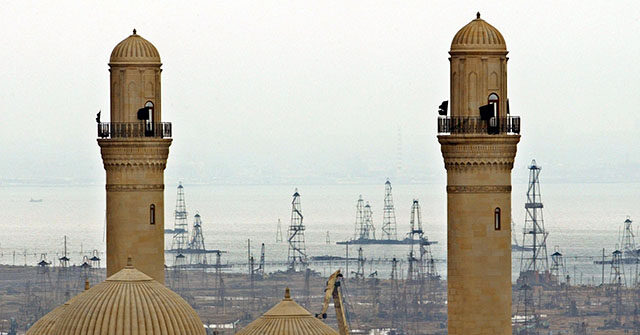Climate groups are voicing their discontent in light of Azerbaijan’s upcoming role as the host for the COP29 global climate summit this November, especially in the context of the country’s plans to significantly increase its natural gas production over the next decade. A report from environmental organizations Urgewald and CEE Bankwatch has dubbed Azerbaijan’s climate strategies as “critically insufficient,” highlighting that the nation is among a select few that have weakened its climate targets while simultaneously intensifying fossil fuel extraction. Specifically, Azerbaijan’s state-owned oil and gas company, Socar, intends to ramp up natural gas production from 37 billion cubic meters in 2024 to 49 billion cubic meters by 2033. This projected increase is anticipated to bolster exports to the European Union by 17%, driven by the EU’s recent shifts away from Russian gas in the wake of geopolitical upheaval following the Ukraine conflict.
The close ties between Socar and the Azerbaijani political elite raise concerns about the influence of fossil fuel interests on climate negotiations, with report author Regine Ricter expressing skepticism about the integrity of hosting COP29 under such circumstances. Ricter’s strong critique, questioning whether placing “the fox in charge of the henhouse” is wise, underlines the apprehension sparks by Azerbaijan’s ambitions in the fossil fuel sector. This viewpoint is contrasted by the official stance from COP29 management, which asserts that Azerbaijan’s expansion in gas production aligns with United Nations frameworks aimed at a “just and orderly” transition from fossil fuels. They argue that the nation’s increased energy capacity is a necessary response to European demands for more gas following the disruptions caused by the conflict with Russia.
The contentious backdrop to Azerbaijan’s COP29 hosting role recalls the controversy enveloping last year’s COP28 conference in Dubai, which was criticized for being heavily influenced by fossil fuel interests. The UAE summit witnessed Sultan Al Jaber, who heads the Emirati national oil company, presiding over discussions, causing frustration among climate activists who felt that urgent calls for reducing fossil fuel usage were sidelined. The discontent among environmental groups has been amplified now, as they perceive the promise of a slow transition away from fossil fuels being contradicted by Azerbaijan’s plans for increased gas production, paralleling what they viewed as a disappointing outcome from COP28.
Criticism of Azerbaijan’s environmental initiatives is also flared by the political orientation of its leadership. President Ilham Aliyev, a prominent figure with Islamist leanings, views the country’s natural resources as divine assets meant for extensive exploitation. With Azerbaijan sitting on vast reserves of about 2.5 trillion cubic meters of natural gas and 7 billion barrels of oil, the government remains heavily reliant on these fossil fuels. Currently, approximately 98% of the country’s energy production comes from fossil fuels, with natural gas accounting for 90% of its electricity generation. Azerbaijan’s commitment to renewable energy projects is often characterized as insufficient compared to its fossil fuel dependency, which raises skepticism regarding the authenticity of its green energy initiatives.
Many climate activists contend that Azerbaijan’s limited investments in solar and wind energy merely serve as a façade for its ongoing fossil fuel expansion. They argue that such initiatives are not just failing to address the country’s significant reliance on natural gas but may also be perceived as strategic maneuvers to secure favorable conditions for increased exports. This scenario effectively positions Azerbaijan as seeking to reassure European nations about their energy purchases amid the transition rhetoric being advanced in international forums. Thus, the narrative constructed by Azerbaijan regarding its commitment to green energy is seen by some activists as an attempt at greenwashing rather than a genuine pivot towards sustainable energy solutions.
In summary, the upcoming COP29 climate summit hosted by Azerbaijan has brought to the fore the tensions between advancing fossil fuel production and addressing climate change implications. Environmental groups are alarmed by Azerbaijan’s plans to escalate natural gas production, interpreting them as contradictions to global climate commitments. With Socar’s pivotal role in Azerbaijan’s economy and its relationship with political leaders, doubts linger about how seriously the negotiation processes will address fossil fuel dependency. This skepticism is compounded by historical comparisons to COP28 and underlying perceptions of greenwashing surrounding Azerbaijan’s renewable energy strategies. As the summit approaches, achieving a balance between fossil fuel reliance and climate commitments appears to be a pressing challenge for both Azerbaijan and the global community.

